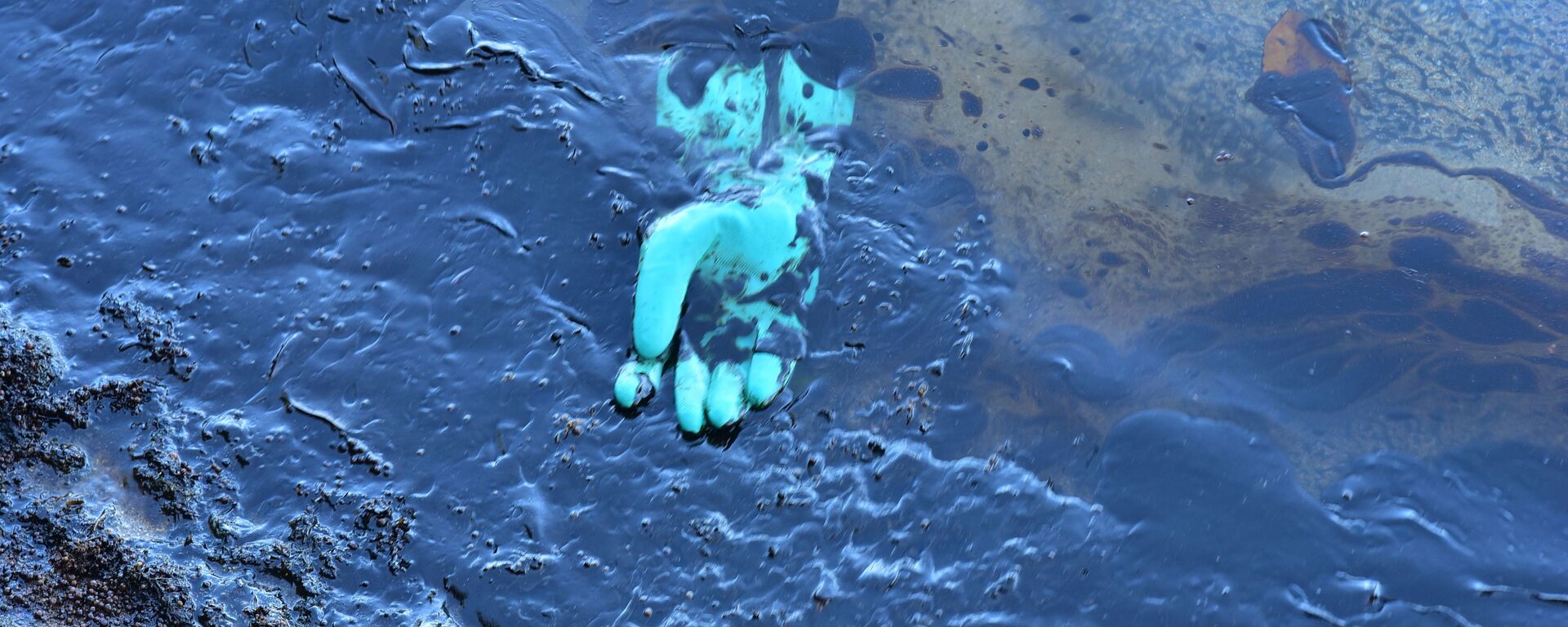https://en.sputniknews.africa/20241226/un-report-reveals-failure-of-nigerian-oil-spill-cleanup-despite-assistance-1069898403.html
UN Report Reveals Failure of Nigerian Oil Spill Cleanup Despite Assistance
UN Report Reveals Failure of Nigerian Oil Spill Cleanup Despite Assistance
Sputnik Africa
The failure of a Nigerian oil spill clean-up agency reportedly left vast tracts of land unusable, contradicting UN efforts to rehabilitate the polluted region. 26.12.2024, Sputnik Africa
2024-12-26T14:30+0100
2024-12-26T14:30+0100
2024-12-26T15:46+0100
sub-saharan africa
united nations (un)
west africa
nigeria
oil
niger river
pollution
environment
https://cdn1.img.sputniknews.africa/img/07e8/0c/1a/1069897190_0:160:3072:1888_1920x0_80_0_0_219f0128cee618ffdb15ac70d8f5aeb5.jpg
A recent UN report, obtained by the Associated Press, revealed the widespread failure of the Hydrocarbon Pollution Remediation Project (HYPREP), a Nigerian agency responsible for cleaning up oil spills in the Ogoni region in the Niger Delta, despite the fact that Ogoniland is on a cleanup list of the United Nations Environment Program (UNEP). In 2018 the UNEP reportedly launched a project aimed at strengthening the HYPREP to better fulfill its responsibilities and clean up oil pollution in the region.HYPREP selected unqualified contractors, used inadequate labs, and obstructed auditors, leading to ineffective and incomplete cleanups, according to the report. The failures are also reportedly attributed to the involvement of politically connected cleanup companies, a former Nigerian minister of the environment told the AP.Oil exploration and production began in the Niger Delta in the late 1950s, but operations in Ogoniland were suspended in the early 1990s due to civil unrest. Since then, the oil fields and installations have remained dormant, but oil spills continue to affect the region due to lack of maintenance and vandalism to oil infrastructure and facilities, according to the UNEP.
https://en.sputniknews.africa/20241216/shell-pipeline-rupture-causes-oil-spill-in-niger-delta-region-of-nigeria-1069732144.html
west africa
nigeria
niger river
Sputnik Africa
feedback@sputniknews.com
+74956456601
MIA „Rossiya Segodnya“
2024
News
en_EN
Sputnik Africa
feedback@sputniknews.com
+74956456601
MIA „Rossiya Segodnya“
Sputnik Africa
feedback@sputniknews.com
+74956456601
MIA „Rossiya Segodnya“
united nations (un), west africa, nigeria, oil, niger river, pollution, environment
united nations (un), west africa, nigeria, oil, niger river, pollution, environment
UN Report Reveals Failure of Nigerian Oil Spill Cleanup Despite Assistance
14:30 26.12.2024 (Updated: 15:46 26.12.2024) Elizaveta Roschina
Writer/Editor
The failure of a Nigerian oil spill clean-up agency reportedly left vast tracts of land unusable, contradicting UN efforts to rehabilitate the polluted region.
A recent UN report, obtained by the Associated Press, revealed the widespread failure of the Hydrocarbon Pollution Remediation Project (HYPREP), a Nigerian agency responsible for cleaning up oil spills in the Ogoni region in the Niger Delta, despite the fact that Ogoniland is on a cleanup list of the United Nations Environment Program (UNEP). In 2018 the UNEP reportedly launched a
project aimed at strengthening the HYPREP to better fulfill its responsibilities and clean up oil pollution in the region.
HYPREP selected unqualified contractors, used inadequate labs, and obstructed auditors, leading to ineffective and incomplete cleanups, according to the report.
The failures are also reportedly attributed to the involvement of politically connected cleanup companies, a former Nigerian minister of the environment told the AP.
Oil exploration and production began in the Niger Delta in the late 1950s, but operations in Ogoniland were suspended in the early 1990s due to civil unrest. Since then, the oil fields and installations have remained dormant, but oil spills continue to affect the region due to lack of maintenance and vandalism to oil infrastructure and facilities, according to the UNEP.


